GPS
Latest
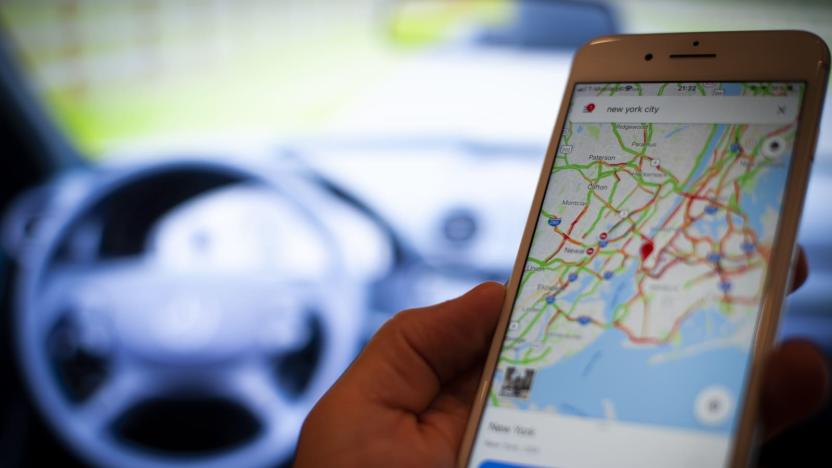
FCC ruling will help make smartphone GPS more accurate
GPS stands for "global positioning system," which is slightly ironic since it's owned and operated by the US Air Force. However, the FCC has just made a move to open up satellite navigation beyond America's borders. A new order means your smartphone can also use Europe's Galileo system, which will make sat nav faster and more accurate, the regulator said.
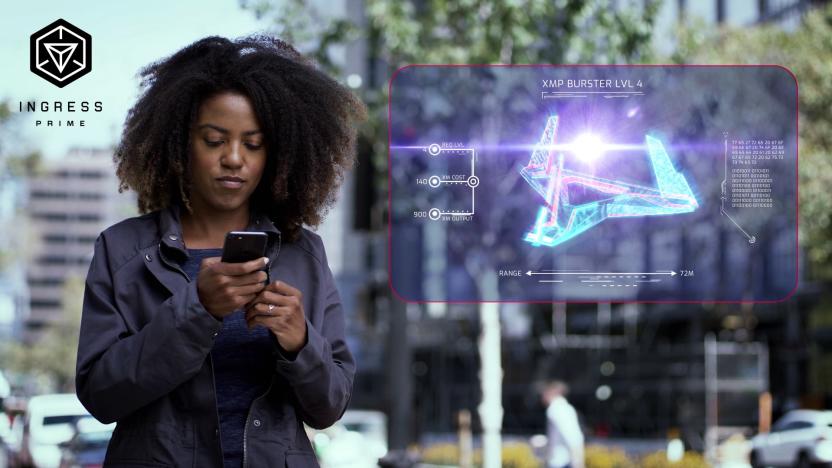
Niantic revives ‘Ingress’ for the post–’Pokémon Go’ world
Niantic has a problem. It's the king of GPS/AR/Maps–based "exergaming," but it's leasing its empire. Pokémon Go is built on IP it doesn't own or control, and a portion of the profits are sent back to Japan. A chunk of the proceeds from its forthcoming Harry Potter game, already a likely blockbuster, will go to J.K. Rowling. It's why Niantic is taking the time to remind the world that its own, original IP, Ingress, still exists.
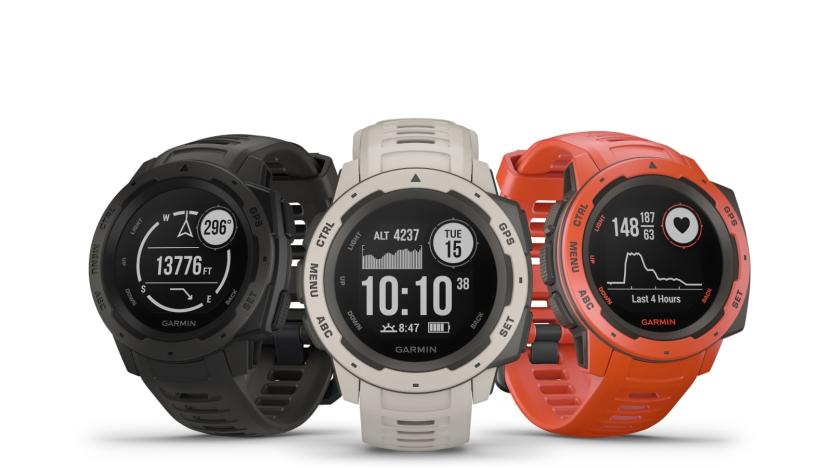
Garmin's rugged $300 smartwatch can last two weeks on a charge
Garmin has added another entry to its growing list of rugged devices for outdoors enthusiasts. It's a smartwatch called Instinct, and it was built to comply with military standards for shock and water resistance. It's also encased in a fiber-reinforced polymer shell with a chemically strengthened and scratch-resistant display. Since it was obviously created for outdoor activities, the device has a 3-axis compass and supports GPS, GLONASS and Galileo, so it can track your location even if you go off the beaten path. To be safe, though, you can plan your route through the Garmin Explore app before you leave, and it will automatically send you on the same route when you head back.

UK reportedly plans its own satellite navigation system
Now that the UK likely won't be involved in the EU's Galileo positioning satellites, it's in a tough spot. How does it get the most accurate navigation technology it can once Brexit is official? By building its own satellite network, apparently. Sources talking to The Telegraph claim that Prime Minister Theresa May has ordered the creation of a UK-built satellite positioning system, with up to £100 million (about $128.5 million) set aside for "mapping out" how it would work.

How Google’s location-tracking issue affects you
Watching Twitter and Facebook commit reputational suicide over the past 20 months has been as painful as it has been entertaining -- entertaining in the sense that all anyone had to do was let the companies be themselves. The cost has been terrible, on democracy, the free press, at-risk populations and soon, I'll wager, on the economy. Still, it's hard not stay glued to our screens, waiting to see what awful things Facebook and Twitter do to us next. While we've been perversely absorbed by the epic-scale human rights incompetencies of Facebook and Twitter (and trying not to get, you know, murdered, jailed or exiled as a byproduct of the platforms), we kind of forgot about some of the other born-yesterday stewards of humanity. Like Google. Which has apparently been playing fast and loose with the whole "we don't track your location" thing.
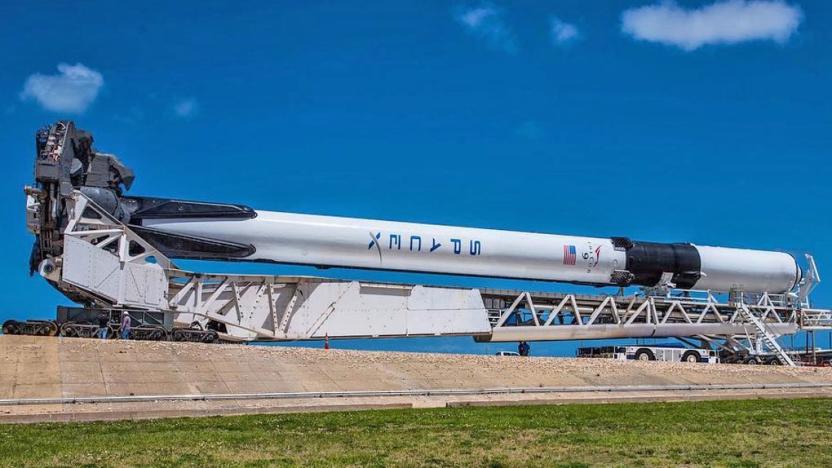
Next-gen GPS satellite launch delayed again
Vice President Mike Pence laid out plans for the US Space Force on Thursday, calling out an advanced type of satellite, GPS III, that is apparently resistant to tampering. According to Bloomberg, however, this specific orbital machinery has been delayed for the last four years, and the launch date has slipped yet again.

Here attacks Google Maps with new freemium website plan
When visiting the website for a local restaurant or other small business, you'll likely see Google Maps embedded to show the location. Developers of such sites were recently thrown for a loop, however, when Google announced new, more expensive pricing and demanded a credit card and Google Cloud account for all API access to Maps. To profit from this discord, Here has unveiled a new "freemium" plan that offers many more free "transactions" (page loads) than Google Maps, with no need to provide a credit card.
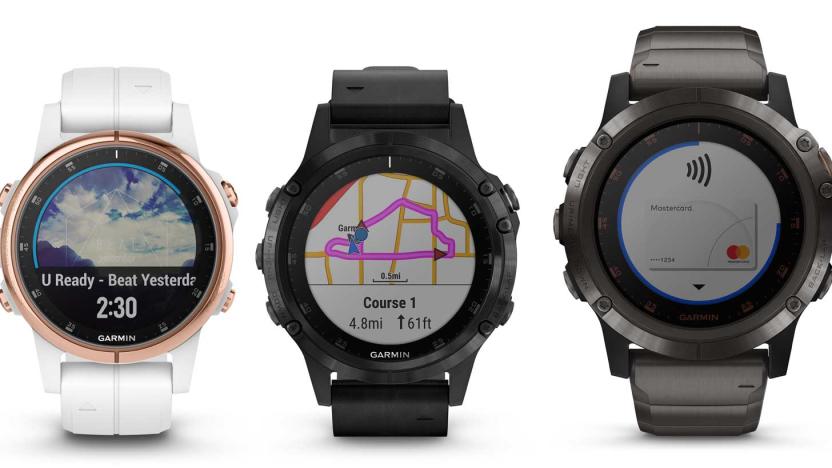
Garmin's Fenix 5 Plus watches help you survive mountain climbing
Garmin is no stranger to catering to fans of specific sports with its GPS watches. Its latest wristwear, however, takes that devotion to another level. It's upgrading its Fenix 5 outdoor watches with the Fenix 5 Plus series, whose star attraction is a new Pulse Ox Acclimation sensor that gauges your blood oxygen saturation levels when you're climbing at high altitudes. If you're not coping well with an arduous mountain ascent, your watch will let you know it's time to take it easy.
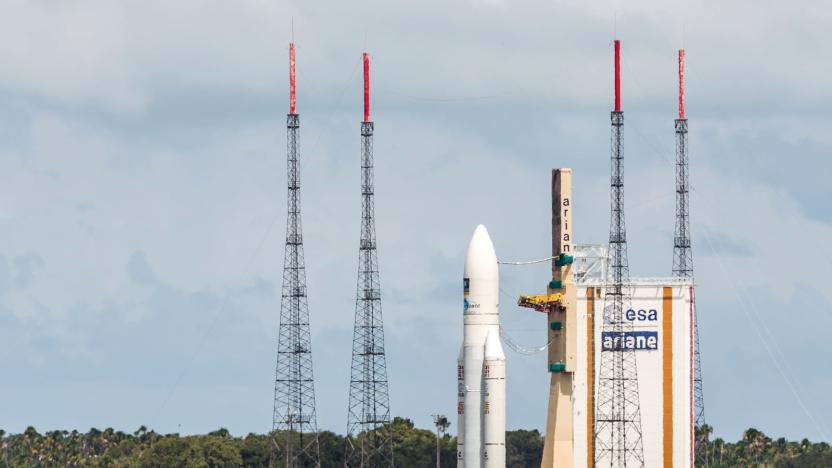
UK won't be involved in Europe's Galileo satellite navigation program
Among the many projects being shaken up by Brexit is the European Union's Galileo program, a satellite-based navigation system along the lines of the US' GPS. It's scheduled to be operational in 2020 and will be used by citizens, military and governments. Though the UK has already put £1 billion toward the project, the country's decision to leave the EU has put its involvement with the Galileo program up in the air -- the EU has been clear that the UK might be shut out from the project since fully including a non-member state would threaten the security of the system as a whole. Now EU members have voted to do just that.

ASUS VivoWatch BP keeps track of your location and blood pressure
ASUS might have pulled out of the Android smartwatch race after the ZenWatch 3, but it's not quite done yet with wearables. At Computex, the company surprised many by unveiling the VivoWatch BP, a follow-up to the original low-power VivoWatch from three years ago. We're looking at a handful of new features and improvements here, with the highlight being a built-in blood pressure monitor -- a rare feature in the smartwatch category. The only other recent direct competitor is the Omron HeartGuide, which is also due to launch later this year.

Inside the animal internet
Halfway across the world, a goat is shivering. You know this because you've hooked her up to an accelerometer, which can measure tiny changes in her body movements. You also know the goat's heart rate, body temperature, how much energy she's using, when she's looking up or down and where exactly in her habitat she is at all times through high tech monitors. You have information about her immediate environment, things like temperature, humidity and altitude. With cameras, you can see the world from her vantage point. With acoustic sensors, you can hear her drink, feed and call to her goat kin.

How child-security apps lengthen the reach of parents
My son recently turned 3 years old. Now that he's a "big boy," he wants to explore and run ahead of me, even though he lacks the wherewithal and caution to do so. My instincts, as a first-time father, are to hold onto him for dear life. I can't hold onto my son forever. But there are steps I can take to lengthen my reach before I let go entirely. Via GPS and beacon technology, developers are creating child trackers -- security apps and hardware to address the modern parent's primary preoccupying concern: "Where is my child right now?"
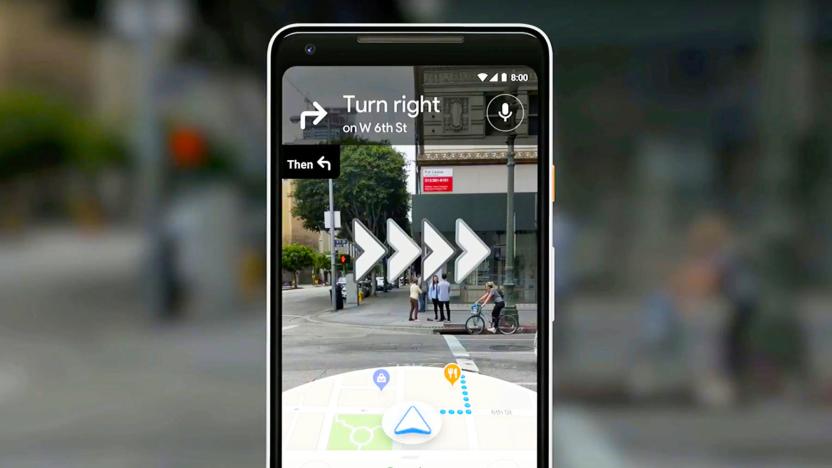
Google shows off its camera-enabled navigation system
Google knows the problems you have to deal with when navigating an unfamiliar locale, even if you do have your smartphone on you. That's why the company's Aparna Chennapragada is showing off an updated version of its VPS, or Visual Positioning System: A way for folks to avoid getting lost when out and about. Rather than craning over your phone and hoping you're walking in the same direction as the blue GPS dot, the camera can look at your surroundings and work it out for you.
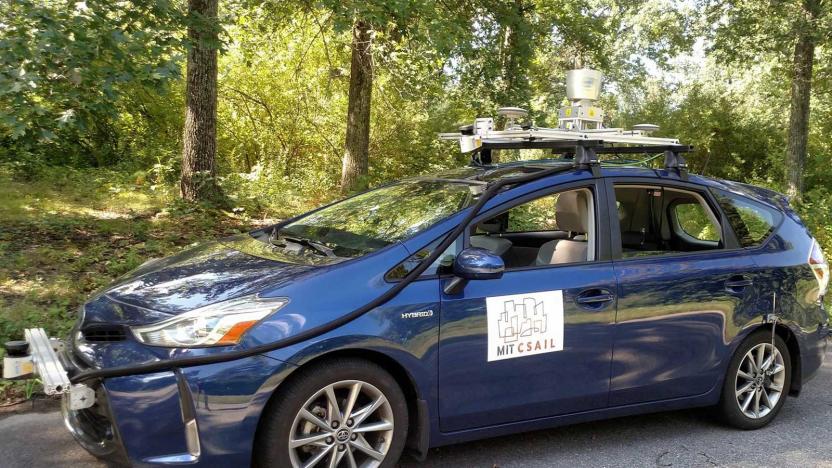
MIT's self-driving car can navigate unmapped country roads
There's a good reason why companies often test self-driving cars in big cities: they'd be lost most anywhere else. They typically need well-labeled 3D maps to identify curbs, lanes and signs, which isn't much use on a backwoods road where those features might not even exist. MIT CSAIL may have a solution, though. Its researchers (with some help from Toyota) have developed a new framework, MapLite, that can find its way without any 3D maps.

Snap is working on a new set of Spectacles
Snap's first forays into hardware may not have been a rousing success -- a year after the launch of Spectacles there were reportedly hundreds of thousands of pairs still sitting in Chinese warehouses. However, it seems the company isn't willing to admit defeat just yet, as a new FCC filing has surfaced suggesting a new version of the tech is on its way.

US soccer stars to play with GPS performance trackers
FIFA has been vocal about its ideas for the future of wearable tech in soccer, and now its vision is coming to life. Statsports is set to become the official on-field performance monitoring device of US soccer, and in the biggest partnership of its kind, will distribute 6,500 Apex GPS devices to players across the men's, women's, youth, Paralympic and Beach National Teams, Development Academy clubs and NWSL.

Brexit may exclude UK from the EU's GPS satellite program
Europe plans to exclude the UK from its GPS-like Galileo satellite program because of Brexit, and Britain isn't happy about it. In a letter to the UK government, Europe said that UK businesses may no longer be able to bid on the project and the UK military might not be able to use the system. That's because the UK will no longer be part of the EU on March 29th, 2019, so Galileo's security would be "irretrievably compromised" if it continues to participate, the EU said.
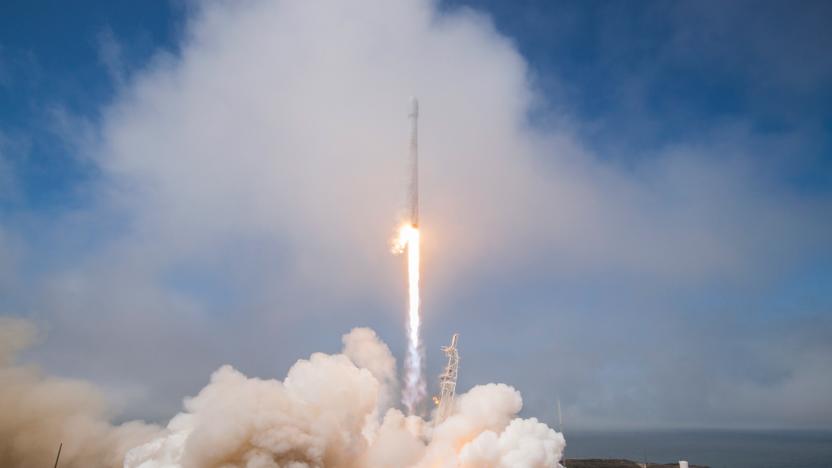
SpaceX rocket carved giant hole in the ionosphere
Rockets can leave a mark on the atmosphere well after they've left, and SpaceX may have learned that first-hand. Researchers have determined that a Falcon 9 launch in August 2017 (the Formosat-5 mission above) not only created circular shockwaves, but cut a 559-mile hole in the plasma of the ionosphere that lasted for up to 3 hours -- it was akin to a localized magnetic storm. The phenomenon was produced by virtue of the rocket's light payload.
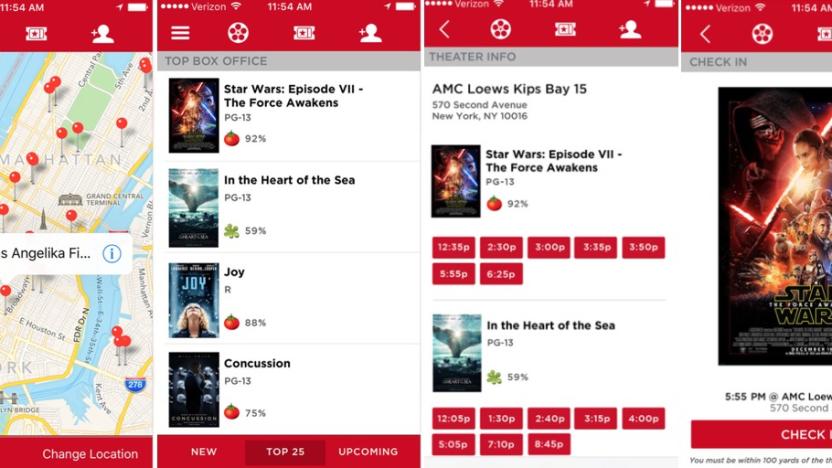
Now MoviePass' CEO says the app never tracked customers
A week after MoviePass CEO Mitch Lowe's comments that "we watch how you drive home" came to light, the exec is walking back those words. In an interview with Variety, Lowe said "I said something completely inaccurate as far as what we are doing...We only locate customers when they use the app." Now, the way Lowe describes the app matches its privacy policy, and the way its technology is explained in the company's patent that he referenced during his original statement. So, all good? Maybe, maybe not. While the service's iOS app has been updated to remove an "unused" permission to access location all the time, the title of Lowe's infamous presentation was "Data is the New Oil: How Will MoviePass Monetize It?" Even if it's not tracking user's location over an extended period of time yet, that's certainly a possibility for the future, not to mention what's possible when you combine that data with information from other clearinghouses. Remember, for many of the companies providing free or low-cost services, data greed is good.

MoviePass pulls 'unused app location' features from its iOS app
Two days after we started reporting on comments by MoviePass CEO Mitch Lowe about his company tracking users after they leave the theater, there's an update for its iOS app. According to the notes, it contains "Theater & Movie Search performance improvements. Removed unused app location capability." The company hasn't provided a firm denial about whether tracking of regular customers extends beyond what's described by the privacy policy, but something has changed. We checked with MoviePass and received this statement from a spokesperson. Today, MoviePass released a new app update, including the removal of some unused app location capabilities. While part of our vision includes using location-based marketing to enhance the movie-going experience for our members, we aren't using some of that functionality today. Our members will always have the option to choose the location-based services that are right for them today and in the future. So, MoviePass users, are you satisfied?










